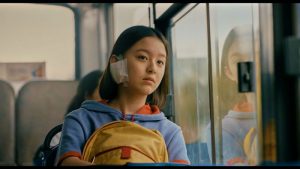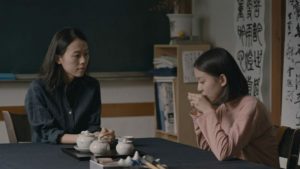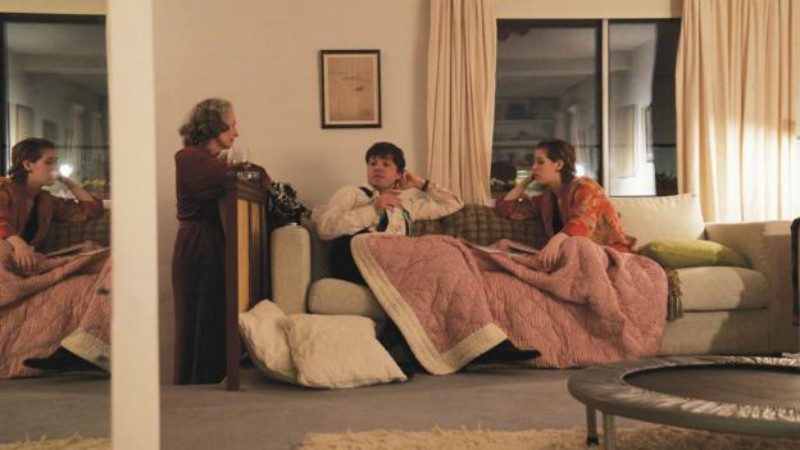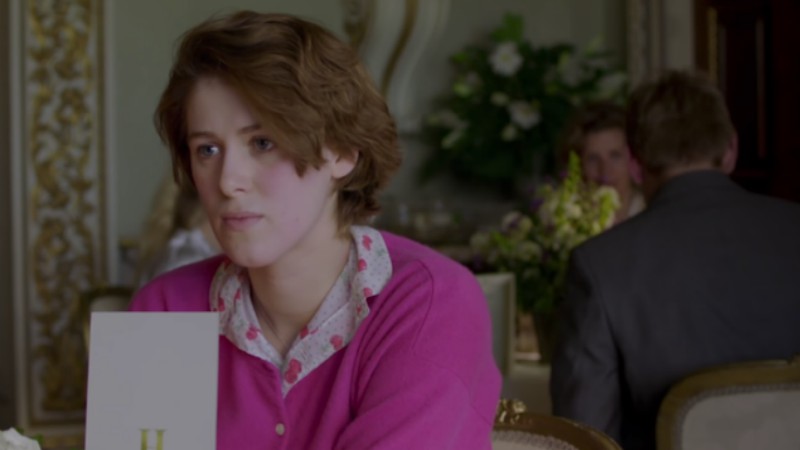QUICK SNAP:LIVE FROM LOCARNO
A naturalist drama that incorporates thriller elements into its slow-burn atmosphere, Declaration shows just how disposable immigrant workers can be. A perceptive work from Malayalam director Mahesh Narayanan, it smartly captures the intersection of class, gender and race-based oppression, showing how an atmosphere of exploitation and corruption hits those at the bottom of the human food chain hardest.
Husband and wife Hareesh (Kunchacko Boban) and Reshmi (Divya Prabha) are from Kerala, in India’s south. They move to the northern state of Uttar Pradesh for a better life. Not only can they find solid work at a disposable glove factory, but they have a better chance of getting their visas approved in order to move abroad. The first images we see are shot on an iPhone, showing Reshmi taking gloves off mechanical hands and putting them in a bucket. This is her skill video, a necessary part of getting her visa application approved. But another, more private video is somehow tacked onto the end of the film, causing a rift between the previously relatively content couple.
The whole film was shot and set during the coronavirus pandemic, which helps to up the sense of paranoia at almost every turn. While no one seems to actually contract the disease, the film makes use of the power dynamics involved with mask-wearing in particularly acute ways: for example, those in charge either choose to forego the mask entirely, wear it under their chin, or have an FFP2 mask instead of the generic blue medical mask. The workers themselves are almost always covered, because they know that the disease would either mean serious health complications or a loss in salary. Coronavirus may seem to infect you no matter who you are or which precautions you take, but the way that you deal with it often depends on your race and class status.
If coronavirus was supposed to be the great leveller, it only really entrenched class privilege all across the world, allowing the rich and powerful to further line their pockets. Marital drama dovetails with the tale of the factory cutting corners, the film slowly accruing details of misplaced and faulty gloves, managers sweeping away inaccuracies and workers blithely uncaring about the quality of the product. Why would they? They’re not even getting paid on time.
If the narrative is relatively straightforward, it’s the way that it’s told that allows complexity to grow in the corners. Narayanan doesn’t necessarily spell out every detail, allowing the camera to linger on certain elements (which I won’t spoil here) to further enrich the hypocrisy that permeates almost every frame. The handheld cinematography and general lack of score immerses the viewer within this realist setting, echoing both the moral dramas of Asghar Farhadi and the class-based consciousness of Ken Loach’s cinema.
While the editing could’ve heightened the stakes in the final act by tightening the tension and removing some fat, the final result is a fascinating drama that makes full use of the coronavirus pandemic — and its attendant measures — as a metaphor for class exploitation.
Declaration plays in the Concorso Internazionale plays as part of the Locarno Film Festival, running from 3-13th August.












